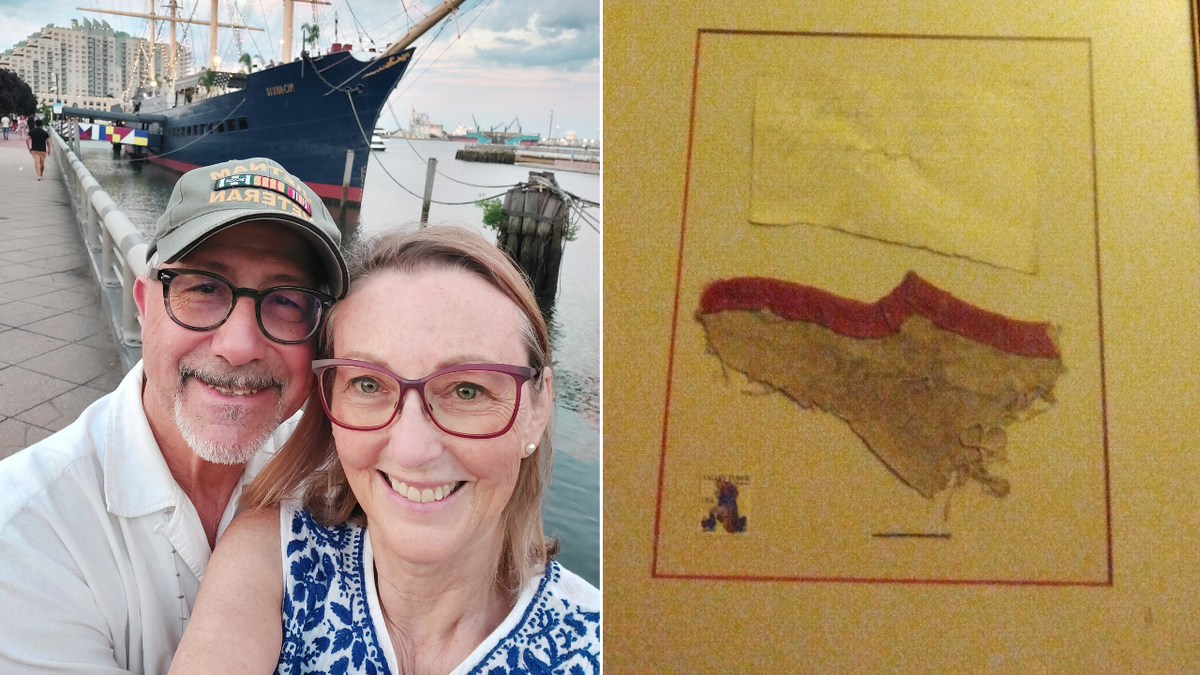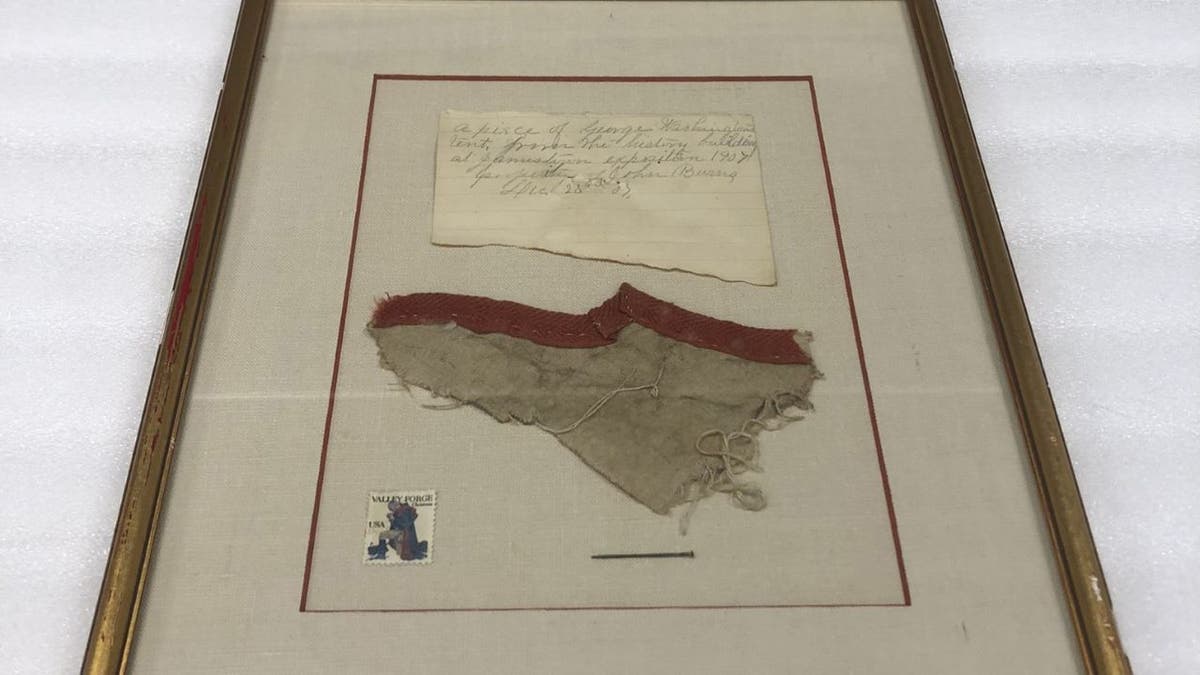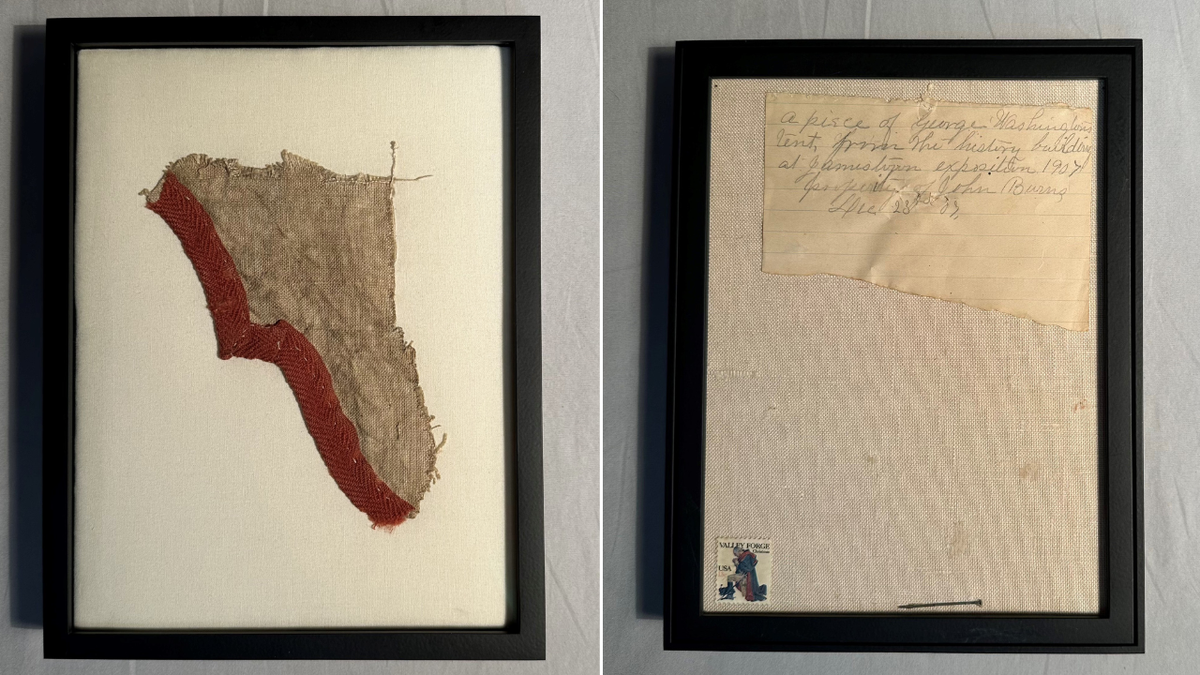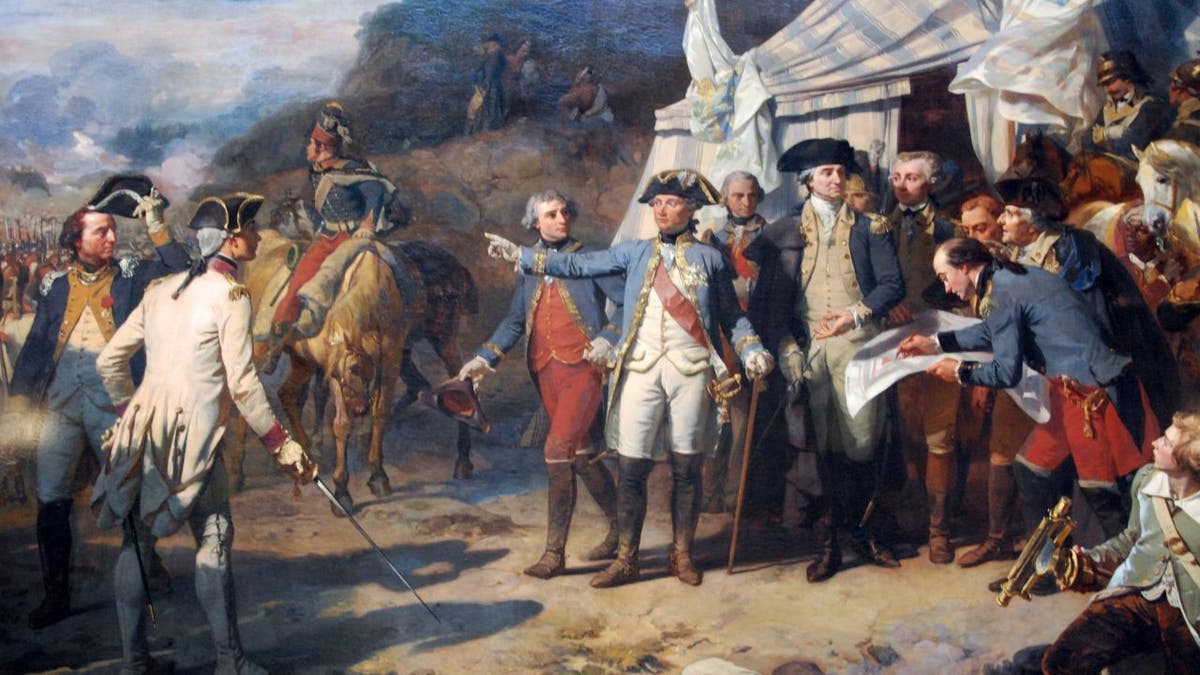Kelsey Grammer-hosted Fox Nation docuseries showcases unique side of George Washington
Kelsey Grammer previews the upcoming historical Fox Nation docuseries exploring the story of Founding Father George Washington.
An artifact that originally belonged to President George Washington recently landed in the hands of a Virginia history enthusiast – and then a museum – all thanks to Goodwill.
The piece is currently on display in the Museum of the American Revolution in Philadelphia. Collector Richard "Dana" Moore stumbled across the artifact – which is a six-inch-long piece of linen fabric from Washington's dining marquee, or tent – on Goodwill's auction site.
The fabric was auctioned off with a note that read: "a piece of George Washingtons tent, from the history building at Jamestown exposition 1907 property of John Burns Dec 23rd 07."
While most of Moore's collection is made up of Civil War artifacts, he has also accumulated pieces from the American Revolution and the War of 1812 over the years through metal detecting. During an interview with Fox News Digital, the history buff said that he thought the piece "couldn't be real" at first.

Richard "Dana" Moore and Susan Bowen lent an artifact belonging to George Washington to the Museum of the American Revolution. (Susan Bowen)
"But when I zoomed in, the fabric looked authentically old," he explained. "The brief handwritten note referencing the Jamestown Exposition of 1907, which was attached with a rusty pin, added to the feeling of age."
"My gut kept telling me this could be real."
Feeling that the piece was special, Moore bought the fabric on the auction site for $1,300. Moore explained that after buying the piece, he felt overwhelmed about being responsible "for such an important artifact of history."
He waited to tell his wife, Susan Bowen, about the purchase, which she was initially skeptical about.
DIVERS DISCOVER 'HIDDEN TREASURES' DURING EXPEDITION TO EERIE ANCIENT SHIPWRECK

The fabric, which has darkened over the years, is currently on display at the Museum of the American Revolution. (Museum of the American Revolution)
"I assumed it couldn't be real until over a year later when we watched an online presentation from the Museum of the American Revolution," Bowen explained to Fox News Digital. "That's what prompted us to reach out to them."
Matthew Skic, a curator at the museum, told Fox News Digital that the fabric was cut as a souvenir while the marquee was on display in 1907. As the note confirms, the canopy made an appearance at the Jamestown Exposition of that year.
"At that time, Mary Custis Lee, Martha Washington’s great-great granddaughter and daughter of Robert E. Lee, owned Washington’s tents from the Revolutionary War," he added. "She put the dining marquee on loan to the exposition."
In 1778, Washington used two marquees while traveling alongside his troops – one for dining and another for his personal offices and sleeping quarters. The fabric that Moore found was part of Washington's dining canopy. Skic certified the authenticity of the fabric after examining the piece.
ARCHAEOLOGISTS EXCAVATE HAUNTING 'CITY OF THE DEAD' PACKED WITH HUNDREDS OF TOMBS

The artifact came with a note referencing a 1907 exposition. (Museum of the American Revolution)
"We took a close look at the weave of the fabric and the style and shape of the red wool edging with assistance from textile conservator Virginia Whelan," he added. "These details match the dining marquee. We were able to determine that this fragment was cut away from the scalloped edge of the roof of the dining marquee."
The expert noted that the fabric has darkened over the years "due to the accumulation of dirt and dust."
"The red wool binding on the edge has faded a bit, but it retains most of its color," he added. "The fragment’s edges are frayed from being cut away from the marquee."
CLICK HERE TO SIGN UP FOR OUR LIFESTYLE NEWSLETTER
Skic added that finding artifacts such as this is "very unusual, especially through a Goodwill Online auction!"
"Prior to the discovery of this fragment, nine fragments of Washington’s tents were known to exist, all in the collections of museums or other institutions," he explained. "The Museum of the American Revolution, for example, owns three fragments of Washington’s tents. There may be more fragments out there!"

General Rochambeau and General Washington giving last orders before an attack at the Siege of Yorktown, October 1781. (Pierce Archive LLC/Buyenlarge via Getty Images)
For more Lifestyle articles, visit www.foxnews.com/lifestyle.
The fabric is currently on display at the Philadelphia museum, along with other fragments of Washington's tents. Historians are still actively investigating the piece, and Skic said that the museum is researching who John Burns, the man who supposedly wrote the handwritten note, was.
Bowen said that seeing the artifact in the Museum of the American Revolution was "an honor."
CLICK HERE TO GET THE FOX NEWS APP
"Seeing it as part of the exhibit was so exciting," she said. "It's been a very emotional day for both of us."










































